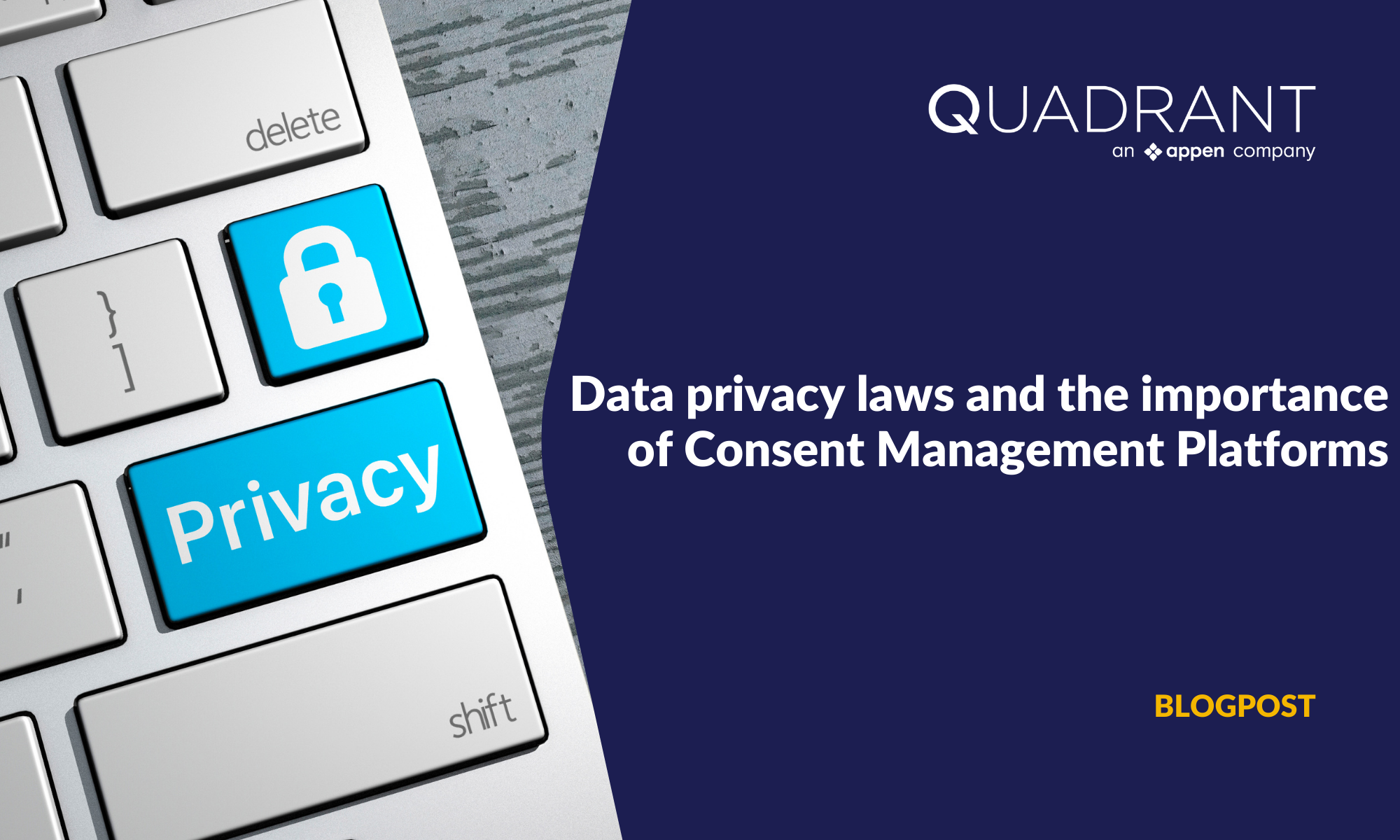The rise of data privacy frameworks
Mobile apps can access various types of customer information – including personal and financial details, images, location, browsing and search history, purchasing patterns and contacts. For a long time, there were no checks and balances in place to prevent unauthorised access and misuse of this sensitive information. Therefore, there was a dire need for regulations that govern the conditions under which businesses are allowed to process sensitive consumer data.

In line with this pressing issue, today, over 100 nations have implemented data-privacy regulations geared towards upholding the privacy rights of consumers across the globe. The most widely known data-privacy frameworks include the EU’s GDPR (General Data Protection Regulation) and California’s Consumer Privacy Act (CCPA). Less than 4 years after coming into effect in May 2018, the GDPR has been used to fine businesses a collective 1.6 billion Euros for breaching rules pertaining to data-compliance. Therefore, it is important for publishers to get answers to some important questions, such as: what is data compliance? Why is it important?
In essence, data compliance is an all-encompassing term that explains the conditions that need to be adhered to in order to protect sensitive consumer data from misuse, theft, loss, and corruption. Sensitive data, which data-privacy frameworks usually refer to as “Personally Identifiable Information” includes any information which can be used to identify an individual i.e., biometric information, credit or debit card number, vehicle number plates, and facial images.
Data privacy concerns
Due to the evolving regulatory landscape and data-privacy violations by prominent businesses like Meta (when it was known as Facebook), Yahoo, Twitter, and Google, many users are wary of sharing their data. In fact, a worldwide survey that included over 10,000 respondents in 2019 found that 40% of users believed that their personal information would be sold to third parties while 47% of users were afraid of security breaches.
The EU's GDPR: Getting the fundamentals right
Since the EU’s GDPR has the widest coverage in terms of the number of individuals under protection, it is important to be familiar with its fundamental stipulations. Businesses must have a legitimate reason for requesting personal data and must educate users about why their data is required. Any personal data that is not required to fulfil the approved purpose cannot be collected and all data must be deleted once the purpose is achieved. Businesses must acquire consent before processing user information. In cases where users are under 16, consent must be obtained from parents or guardian(s). Users can inquire what information companies have on them and how companies utilise this data, and they can also withdraw consent and ask for the deletion of their data.
Besides managing consent, companies must also invest in cyber security measures to protect user information. Businesses are responsible for ensuring the privacy and protection of user data when this information is being shared with third parties (when such data is passed on from publishers to vendors). In the event of a data breach, organisations have 72 hours to notify the relevant regulatory authorities and affected users.
GDPR applies to all companies that collect data on EU citizens regardless of their location or the size of their user base. Depending upon the severity of data-privacy violations, fines for breaches can reach 20 million Euros or 4% of yearly revenue (whichever is higher).
Consent Management Platforms: Benefits and desirable qualities
Consent Management Platforms (CMPs) can be used to acquire user data that fuels personalisation, be it a tailored user experience or targeted marketing. Advertisers pay more for personalised ad delivery as it typically results in greater revenue. In fact, most leading brands only advertise on apps that are compliant with privacy regulations and have up to date consent records.
Having a Consent Management Platform in place is essential for a publisher who wishes to secure better advertisers.
Additionally, a CMP also allows publishers to utilise other forms of monetization such as supplying anonymised location data.
How does one go about choosing a CMP? As a bottom line, it should be approved by the Interactive Advertising Bureau (the authority that determines standards for online advertising across Europe and the US). It is also beneficial to have a CMP that is flexible in its presentation so it can be seamlessly integrated into an app without looking out of place. It should be simple to understand for the end user, and it should run on a fast backend infrastructure.
Quadrant's Consent Management Platform (QCMP)
Due to a firm belief in the rights and principles embodied in data-privacy regulations, Quadrant made its own CMP (QCMP) to grant publishers a comprehensive tool for staying compliant with such laws.
Your mobile applications can be added to your QCMP account through an easy-to-use dashboard – which also allows you to showcase IAB-certified partners and ensure compliance with GDPR or CCPA.
QCMP records the consent lifecycle of users on an immutable blockchain.
Consent records, therefore, are secure and ready for audit whenever the need arises. The QCMP dashboard gives publishers a granular view of the permissions granted by their users and any relevant requests that they make.
QCMP is free to use for mobile app developers and publishers with no MAU limit.
To learn more about the fundamentals of consent management, download our eBook.
Ensure that your mobile app and data collection practices are compliant with data privacy regulations.





